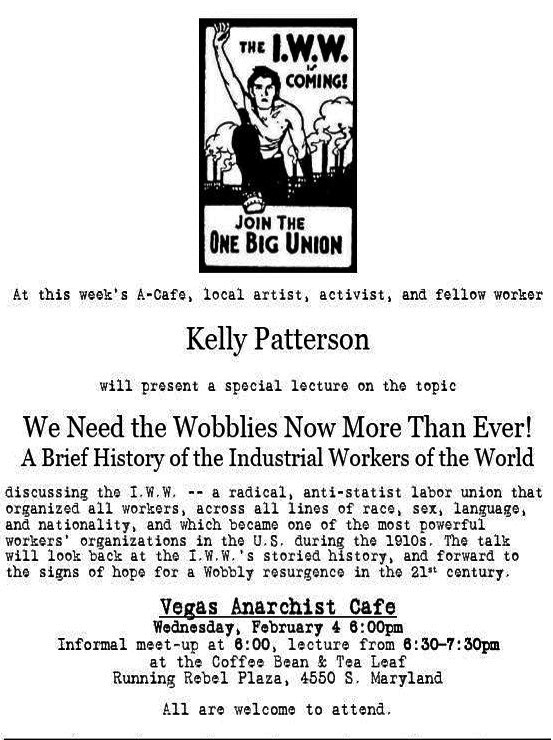Rad Geek Speaks: Motorhome Diaries interviews me on agorism and counter-economics
It’s been a couple days since I was hepped to the fact that this video has gone online; but I’ve been delayed by travel and other considerations. Anyway, here is a video of Jason Talley’s interview with me in Las Vegas back in April, focusing on anarchism, agorism, and counter-economics. Judging from the closing title card, it looks like the MD3 have decided to break out the material from the interview on anarchism into a separate video, presumably forthcoming. But, in the meantime, this video has the segments of the interview where our discussion focuses on building the counter-economy as an alternative to electoral politics. Enjoy!
The one thing which I regret not having the time to discuss during the interview — which I would have done my best to break down, were I not already taxing Jason’s very generous allowance of time in what are typically very concise interview segments — is how my sympathies for mutualism and wildcat unionism influence my understanding of the agora, and of the sort of counter-economy that we should work to build: why, in short, I think that libertarians should be especially interested in building, so to speak, Black-and-Red markets. (Red
as in workers-of-the-world-unite. Not, of course, as in Konkin’s notion of red market
mafiosi.) Of course, Konkin’s original-flavor agorism is already very much in favor of the informal sector, and opposed to the state-collaborationist, state-supported corporate economy; but I think that agorists would do well to look at the kinds of counter-institutions that have historically been associated with the anti-statist and anti-authoritarian Left: fighting unions, direct action on the shopfloor, grassroots mutual aid networks, worker and consumer co-ops, neighborhood permaculture projects, community free clinics, participatory indymedia, CopWatch as a means of community self-defense, LETS trading networks, small-scale gift economies based on gleaning and homesteading (Food Not Bombs, Homes Not Jails, free stores, etc.). And so on, and so forth. To the degree that State privilege and State subsidy have artificially roided-up the rentier-centric, cash-lubricated, centralized, formalized bidniz economy, we can expect the counter-economy (which is the embryonic new society, being built within the shell of the old) to form up in opposite tendencies: egalitarian and decentalized exchange (which Konkin rightly predicted and emphasized), and also significantly more emphasis on informal connections, often based not on contracts or cash-on-the-barrelhead exchanges but rather on practicing solidarity, mutual aid, gleaning, homesteading, and other cashless forms of value-creation and social exchange (which I think Konkin underemphasized and overlooked in various ways). (I hardly expect cash, let alone simple quid-pro-quo exchange, to disappear; I’m certainly not interested in any dogmatic campaign to rub them out. But I do expect the counter-economy, and future fully-freed markets, to emphasize them much less intensely, and much less monomaniacally, than the current state-approved official economy does.) All of which underlines why I think it’s important for radical libertarians to see ourselves as part of the Left; and for that understanding to cash out in serious efforts to work together on countereconomic projects with the folks who ought to be our primary allies — that is, other anarchists — rather than working on the familiar set of conventional-delusional electoral projects together with conservatives and conventionally pro-capitalist minimal-statists, which all too many good radical libertarians have, due to a combination of cultural comfort zones, and statocentric models of political change, wasted their time and resources on in the past.
Anyway, like I said, there may be another interview segment forthcoming focusing on anarchism; if so, I’ll let you know when it drops.

